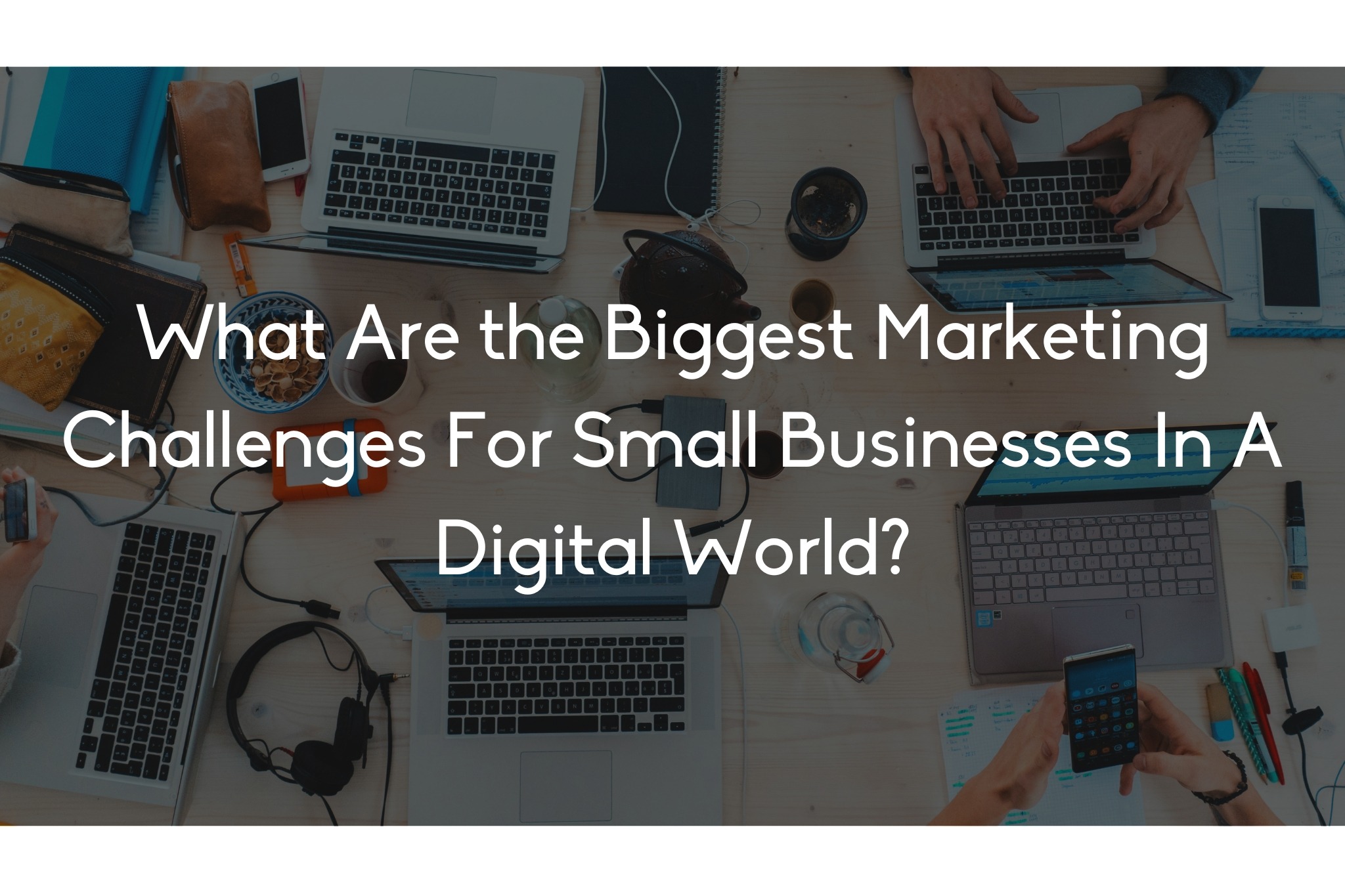
Running a small business in today’s digital age is both exciting and daunting. The promise of reaching millions of potential customers with the click of a button is alluring. However, for many small business owners, navigating the ever-evolving digital landscape presents unique challenges. With so many platforms, tools, and strategies to choose from, the journey to digital success can feel overwhelming.
So, what are the biggest marketing challenges for small businesses in a digital world?
In a digital-first world, small businesses face specific hurdles that can make or break their marketing efforts. From limited budgets and resources to staying ahead of trends and battling big competition, overcoming these challenges is crucial for success. Understanding the most common marketing difficulties helps small business owners identify and address them with clarity, focus, and the right tools.
If you’re a small business owner or an entrepreneur looking to strengthen your digital marketing strategy, this article will guide you through the key challenges you might face—and how to tackle them. Let’s break it down into the most pressing obstacles and explore practical solutions to keep your business competitive and visible in a fast-paced online environment.
Small businesses often operate on tight budgets, which restricts their ability to invest heavily in marketing campaigns, paid advertisements, and advanced digital tools. Limited staff resources mean marketing efforts might fall on the shoulders of one or two people who are already juggling multiple responsibilities.
Unlike large corporations, small businesses can’t throw money at every problem, making it essential to maximize every dollar. The good news is that digital marketing offers a range of affordable strategies, from organic social media posts to email campaigns that won’t break the bank. Prioritizing cost-effective tactics, like content marketing, search engine optimization (SEO), and social media engagement, can yield strong returns without requiring massive budgets. Tools like free analytics platforms and low-cost marketing automation software can help small businesses stretch their resources while staying competitive.
In a crowded digital landscape, standing out among countless competitors can be difficult, especially when you’re a new or small business. Building brand awareness takes time, consistency, and a smart approach to gaining visibility.
For small businesses, crafting a clear brand identity is crucial to cut through the noise. Instead of trying to be everything to everyone, businesses should focus on their unique selling proposition (USP) and target niche audiences. Social media platforms like Instagram, Facebook, and TikTok allow for creative and personal engagement with customers. Additionally, strategic partnerships, collaborations, and influencer marketing can help small businesses amplify their reach. By consistently showing up with valuable content and a relatable brand story, small businesses can slowly but surely gain traction in the minds of their target audience.
Digital marketing trends evolve rapidly. What worked a year ago may not be effective today. From algorithm changes on social media platforms to new SEO practices, keeping up with these shifts can be time-consuming and confusing.
Small businesses need to embrace flexibility. Staying informed is the first step—regularly following marketing blogs, subscribing to industry newsletters, and participating in webinars can keep business owners up to date on the latest trends. However, it’s equally important not to chase every shiny new strategy. Instead, focus on a handful of core digital tactics that align with your business goals and audience. Use A/B testing to experiment with new ideas while refining what already works. Remember, consistency is key; staying adaptable while sticking to a proven digital marketing plan can provide a solid foundation amid changing trends.
Big companies dominate the digital space with enormous marketing budgets, dedicated teams, and access to advanced tools. Small businesses often find it challenging to compete, especially when trying to rank for the same keywords or bid for the same ad space.
While it’s true that small businesses can’t always compete head-on with industry giants, there are ways to level the playing field. One of the best strategies is focusing on local SEO and marketing efforts. By optimizing your business for local search results, such as “best bakery in [city name]” or “plumber near me,” you can capture the attention of nearby customers searching for services close to them. Engaging in community-based marketing, participating in local events, and leveraging Google My Business listings can give small businesses an edge against national brands that may not have a strong local presence.

Many small businesses struggle with collecting, analyzing, and using data effectively. Digital marketing platforms offer a wealth of data, but understanding how to interpret and apply that information can be overwhelming without the right tools or expertise.
Data-driven marketing is crucial for making informed decisions, but it doesn’t have to be intimidating. Small business owners should start by focusing on a few key metrics: website traffic, conversion rates, customer demographics, and social media engagement. Free tools like Google Analytics can provide a deep dive into how customers find and interact with your business. Once you understand the basics, you can use data to refine your strategies, optimize your ad spend, and improve targeting. For those who feel overwhelmed, outsourcing to digital marketing consultants or agencies can help manage data analysis more efficiently.
In a digital world, having a well-designed website and active social media profiles are non-negotiables. However, creating a cohesive and engaging online presence can be challenging for small businesses that lack in-house web designers or content creators.
Your website is often the first impression potential customers have of your business, so it needs to be polished, easy to navigate, and mobile-friendly. Investing in professional web design services or using intuitive DIY platforms like Squarespace or Wix can give your business a credible online presence without breaking the bank. Equally important is maintaining active social media profiles that showcase your brand personality and expertise. Consistently publishing content, whether it’s blog posts, videos, or customer testimonials, helps build trust and engagement. Small businesses should also focus on building relationships with their audience through social media interactions, responding to comments, and participating in relevant online communities.
Running a small business means wearing many hats. For business owners already managing operations, customer service, and inventory, finding the time to dedicate to digital marketing can be a significant challenge.
Automation is a game-changer for small businesses strapped for time. Marketing automation tools can streamline everything from social media posting to email campaigns, saving time while ensuring consistent outreach. Scheduling tools like Hootsuite or Buffer allow you to plan and publish posts in advance, while email marketing platforms like Mailchimp can help automate email sequences. Delegation is also key—hiring freelancers, part-time marketers, or working with digital agencies can help free up time while ensuring your marketing efforts remain strong.
The digital world is full of opportunities for small businesses, but it also presents unique challenges. By addressing these hurdles head-on with smart strategies and the right tools, small businesses can thrive in the ever-changing online marketplace. Remember, it’s about playing to your strengths, remaining flexible, and consistently delivering value to your audience.

